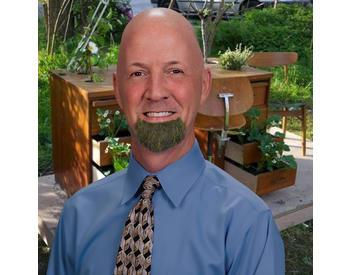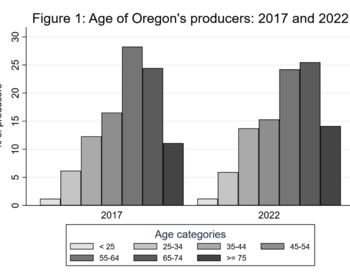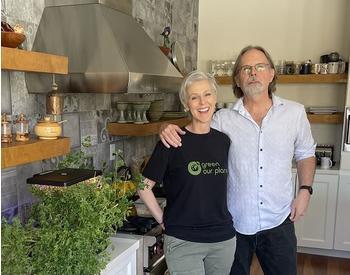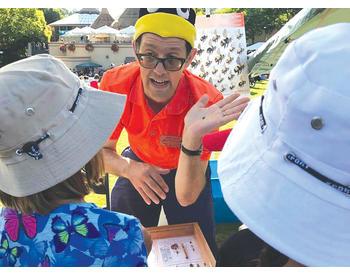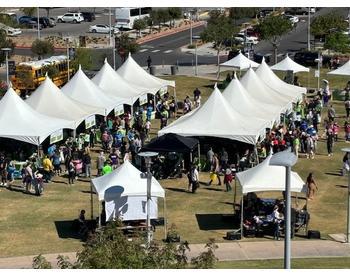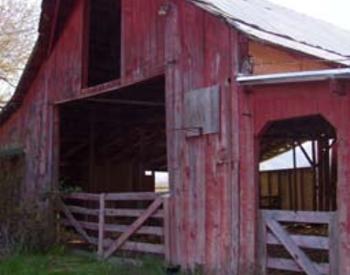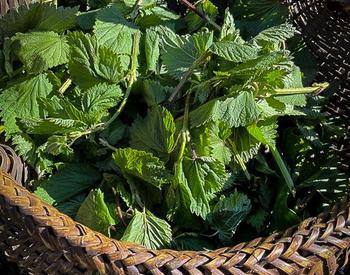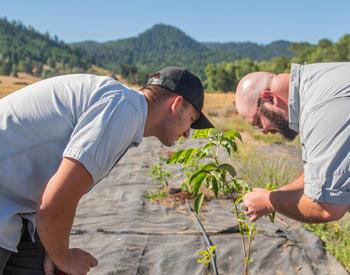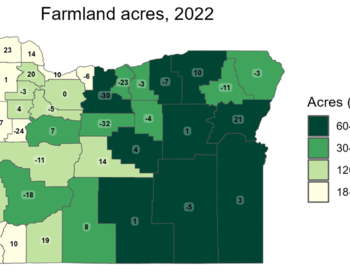CORVALLIS, Ore. – Jacob Mogler grew up in Iowa farm country and worked farms as a kid, but after high school he wrote off farming to join the U.S. Marine Corps.
Mogler served four years and then graduated from Oregon State University. He returned to agriculture when he moved to the Willamette Valley in 2016 and fell in love with sheep farming. In 2019, he started raising sheep on 14 acres near Corvallis that he and his wife, Carli, named Willamette Community Lamb.
Mogler soon learned about the Military Veterans Farmer Network, a program of Oregon State University Extension Service meant to connect military veterans engaged in or interested in farming. Vets receive information about funding opportunities via an online listserv where they also exchange ideas and ask questions of each other, go on farm tours and, most of all, build community.
“If you go on a farm tour or go to other events, there’s commonality that you know you share,” said Mogler. “It’s a bridge to kindred spirits. If you don’t have that shared commonality of serving, you start out at square one finding people to share experiences and knowledge with. The veterans farmer network is an easier starting point for connecting with others.”
Teagan Moran, OSU Extension Small Farms coordinator in the Willamette Valley, had that goal in mind when she started the program. At the 2019 OSU Extension Small Farms Conference, there was a meeting for military veterans who were interested in farming, and it became clear they needed support.
“We were always aware that there are veterans who were engaging with our Small Farms program, but we didn’t know if we were meeting their needs,” Moran said. “It became obvious there was a desire to connect with one another.”
Moran’s first plan of action was to create a listserv she continues to use to send out information about resources vets in the program may not know about, like grants or agencies that work with veterans. She also uses the email tool to let participants know about events and networking opportunities and encourages those on the list it to use the communication channel to connect directly with each other. Farm tours at veteran-owned farms are one of the most popular activities.
“Veterans for a long time have been touted as ideal candidates to enter farming,” Moran said. “They have compatible skills, and we recognize that working with their hands has therapeutic benefits. It’s win-win.”
Work that keeps hands busy
In southern Oregon, Maud Powell, Extension Small Farms faculty in Jackson County, expanded Extension’s 19-year-old beginning farmer training to include a program specific to military veterans. Funded by the U.S. Department of Agriculture, Growing Veteran Agripreneurs has served vets in the Rogue Valley for four years. Now managed by Diane Choplin, Extension Small Farms education program assistant to Powell, the program is designed for veterans interested in pursuing careers in small-scale agriculture and combines farm tours with season-long farm training.
The veterans meet at the Southern Oregon Research and Extension Center in Central Point once a week for four hours to work alongside mentors to develop practical farm skills and knowledge. Through the hands-on work, vets learn about and practice seeding, transplanting, irrigation, crop planning and rotation, integrated pest management, cover cropping and drought-mitigation techniques.
“I was amazed last summer when it was 104 degrees and we still had seven people show up,” Choplin said. “You don’t come to work outside when it’s 104 unless you enjoy what you’re doing. I see people hanging out. There’s a feeling of reunion when folks get back together. There’s joy and excitement when they get together.”
James Miller served four years in the Marines as an aircraft rescue fire fighter and emergency medical technician. When he moved to Oregon, Miller spent a year selling insurance and decided he didn’t want a desk job, so he went back to school to become a paramedic. He found the fast-paced work took him away from his children. In 2019, he and his wife, Kate, bought five acres in Elmira outside of Eugene, named it Sunwave Farms and decided to grow ingredients for salsa to sell at a small café they owned.
The learning curve was high. Miller’s first two seasons failed, but he didn’t give up.
“More and more I’m enjoying the lifestyle,” Miller said. “This is my life now and how I want to live. Other jobs drain you, pull your joy. Now I have coffee in the morning, go out to the greenhouse and work and go back to play with the kids. I make my own schedule and that’s what I want. How do I raise my kids and tell them to follow their dreams, if I’m not doing it?”
Last year his organic farm produced gallons of tomatoes that the family turned into salsa. This year, he put in more tomatoes, cucumbers, peppers and sunflowers to sell to local restaurants.
“The program reaches vets that normally like solitude,” Miller said. “For whatever reason they feel excluded, not part of society, but growing things is worthy of their time. The suicide rate is astronomically high for vets. Getting them involved in the dirt and the hope of another season – there’s something in that, I think.”
Mogler, who is currently raising 35 sheep, said he enjoys the work because it makes him sweat and keeps his hands busy. That’s a common theme from the vets in the program, Moran said. Other shared skills like discipline, hard work and a sense of service, make them good candidates for farming, she said. Having support from other vets serves to increase self-confidence and gives them an additional tool for learning. The network, Mogler said, creates a safe place where the vets see themselves, a community of learning and sharing.
“Overall, the veterans seem to benefit from being in a cohort comprised primarily of other vets,” Powell said. “I believe that the sense of overlapping or related past experiences strengthens the camaraderie and community-building aspects of the cohort model. As a result, we see greater levels of engagement and lower rates of attrition over the course of the season, which translates into better-trained beginning farmers who have the built-in support of a peer group.”





